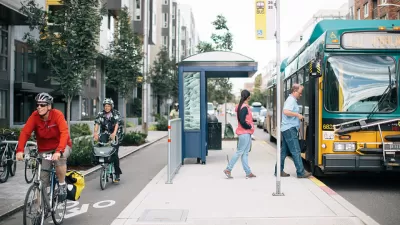Heatwaves are the leading cause of deaths related to weather. A new study seeks to understand the impact of heatwaves and extreme heat exposure on humans and the cities in which they live.

"The motley drivers of heat and cold exposure in 21st century US cities," a paper published by the Proceedings of the National Academy of Sciences (PNAS), reports on the findings of a new study about human exposure to extreme heat.
To humanize the research, the study reports impact in terms of person-hours: the number of hours of intense exposure experienced by humans.
"Overall, the researchers found that the average annual heat exposure at the start of this century in the United States was about 5.2 billion person-hours. They calculated that assuming a worst-case scenario of peak global warming, population growth and urban development, the annual heat exposure would rise to 150 billion person-hours by the end of the century, a nearly 30-fold increase," writes Sarah Wray.
The Arizona State University researchers responsible for the study make use of a climate change modeling approach to better understand the influence of climate change on cities. In the United States, sunbelt cities were found to be the worst affected cities.
Wray's article summarizes the key takeaways from the research and makes suggestions about how cities can increase their resiliency in the face of climate change. Wray also notes that the researchers are working on a followup paper to communicate "city-specific estimates of the avoided heat exposure derived from urban adaptation measures and greenhouse mitigation."
FULL STORY: Study highlights US cities at risk of rising heat exposure

Maui's Vacation Rental Debate Turns Ugly
Verbal attacks, misinformation campaigns and fistfights plague a high-stakes debate to convert thousands of vacation rentals into long-term housing.

Planetizen Federal Action Tracker
A weekly monitor of how Trump’s orders and actions are impacting planners and planning in America.

San Francisco Suspends Traffic Calming Amidst Record Deaths
Citing “a challenging fiscal landscape,” the city will cease the program on the heels of 42 traffic deaths, including 24 pedestrians.

Defunct Pittsburgh Power Plant to Become Residential Tower
A decommissioned steam heat plant will be redeveloped into almost 100 affordable housing units.

Trump Prompts Restructuring of Transportation Research Board in “Unprecedented Overreach”
The TRB has eliminated more than half of its committees including those focused on climate, equity, and cities.

Amtrak Rolls Out New Orleans to Alabama “Mardi Gras” Train
The new service will operate morning and evening departures between Mobile and New Orleans.
Urban Design for Planners 1: Software Tools
This six-course series explores essential urban design concepts using open source software and equips planners with the tools they need to participate fully in the urban design process.
Planning for Universal Design
Learn the tools for implementing Universal Design in planning regulations.
Heyer Gruel & Associates PA
JM Goldson LLC
Custer County Colorado
City of Camden Redevelopment Agency
City of Astoria
Transportation Research & Education Center (TREC) at Portland State University
Jefferson Parish Government
Camden Redevelopment Agency
City of Claremont





























